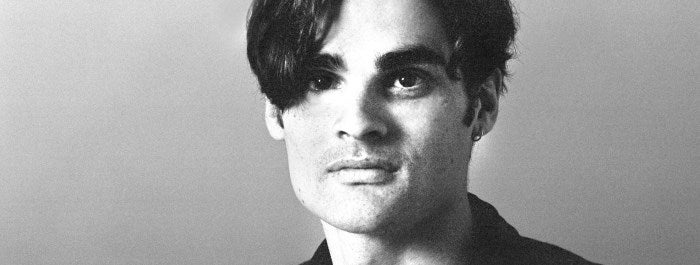Meet the Cone Institute composers: Noah Kaplan

Noah Kaplan, one of the four composers of the 2017 NJSO Edward T. Cone Composition Institute, chats about his career and Forest Through Forest, which the NJSO performs on July 15 at 8 pm at the Richardson Auditorium in Princeton.
What sparked your interest in composing?
When I was growing up in LA, my dad would take me to symphony concerts, and when I was 10 or 11, an old family friend gave me a set of Charlie Parker, John Coltrane and Miles Davis CDs. I got really excited about jazz and started playing the saxophone, and I also studied classical music theory in high school. I went to the New England Conservatory for jazz performance but also studied a lot of classical theory and composition—microtonal theory, traditional harmony and counterpoint.
What experiences have shaped your path as a composer?
I moved to New York and played jazz and wrote music for six years before going to Princeton University [where, after earning a master’s degree in composition from in 2015, Kaplan is currently a Ph.D. candidate]. The experience of working in jazz and rock groups, and writing music for my art-rock band, Dollshot, have had a huge impact on my instrumental writing.
How would you describe your approach to composing?
I usually don’t consider [genre] boundaries when I compose. I bring my phone around and record sounds I like. Sometimes I’ll be listening to another work and get an idea, like Richard Strauss inspired the overall mood [of Forest Through Forest]. I’ll take it in a different direction, so one wouldn’t necessarily [hear] what inspired it, but it’s definitely there for me. Other times, an idea will occur to me and I’ll record it so I can start figuring out the potential for where it could lead. Often, it’s a mixture.
What inspired Forest Through Forest, your Cone Institute work?
Forest Through Forest started with a three-minute piece I wrote for Tanglewood last summer as a duo for cello and piano. I got interested in exploring what could be underneath the surface of that material, so when I got back to New York I started writing music—microtonal jazz and horn fanfares and a waltz—that could sort of peek through the seams of the other piece.
How would you describe Forest Through Forest to a listener?
The first half of the piece is really driving and propulsive, and it sort of gets consumed by this big, Straussian military march in the middle. Out of that comes this much more romantic, lyrical, but strange music, and the piece resolves again when the propulsive prelude music comes back and sort of cuts everything off.
What are you hoping to gain from the Cone Institute?
I think having a chance to hear the piece rehearsed and performed by an awesome orchestra is really exciting. The workshop aspect of being able to work in-depth and revise the piece is really appealing.
» Read more about the 2017 Cone Institute composers and their works
» See details for the 2017 Institute concert, “Scores: New Orchestral Works”
» Learn more about the Institute
SCORES: NEW ORCHESTRAL WORKS
JOANN FALLETTA conductor
STEVEN MACKEY Institute director, host and electric guitar
ERIC WYRICK violin
NEW JERSEY SYMPHONY ORCHESTRA
Program to include:
SAAD HADDAD Takht
NOAH KAPLAN Forest Through Forest
SAM LIPMAN Song of the Bhagavan
ALYSSA WEINBERG Tereza Slumbers
STEVEN MACKEY Four Iconoclastic Episodes
